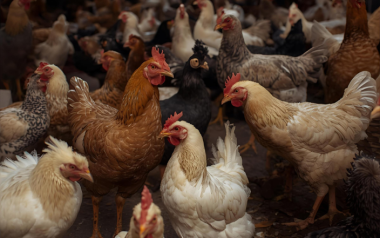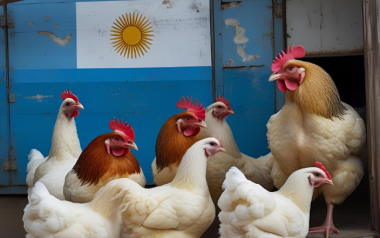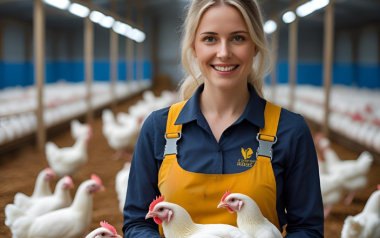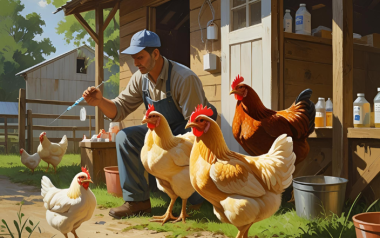North Carolina accounts for most of the illnesses with 13 cases, followed by Iowa with 11, and Virginia, Georgia and California with 9.
25 May 2021
Don’t kiss or snuggle backyard poultry, C.D.C. says after Salmonella outbreak
Backyard poultry, like chicken and ducks, can carry Salmonella germs even if they look healthy and clean. These germs can easily spread to anything in the areas where they live and roam.
Available in other languages:
Content available at:
العربية (Arabic)
According to the U.S. Centers for Disease Control and Prevention, an active Salmonella outbreak has been linked to backyard poultry. The C.D.C. has reported 163 illnesses and 34 hospitalizations across 43 states. However, U.S. officials believe that the number of sick people can be higher since many people can recover without medical treatment.
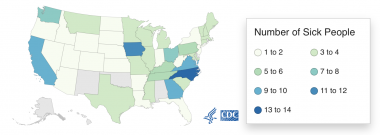
The agency has issued a series of recommendations to avoid the spread of the bacteria.
“Don’t kiss or snuggle backyard poultry, and don’t eat or drink around them. This can spread Salmonella germs to your mouth and make you sick.”
Backyard poultry, like chicken and ducks, can carry Salmonella germs even if they look healthy and clean. These germs can easily spread to anything in the areas where they live and roam.
Here are the recommendations from the C.D.C.:
What Backyard Flock Owners Should Do
- Wash your hands
- Always wash your hands with soap and water immediately after touching backyard poultry, their eggs, or anything in the area where they live and roam.
- Use hand sanitizer if soap and water are not readily available. Consider having hand sanitizer at your coop.
- Be safe around backyard flocks
- Don’t kiss or snuggle backyard poultry, and don’t eat or drink around them. This can spread Salmonella germs to your mouth and make you sick.
- Keep your backyard flock and supplies you use to care for them (like feed containers and shoes you wear in the coop) outside of the house. You should also clean the supplies outside the house.
- Supervise kids around flocks
- Always supervise children around backyard poultry and make sure they wash their hands properly afterwards.
- Don’t let children younger than 5 years touch chicks, ducklings, or other backyard poultry. Young children are more likely to get sick from germs like Salmonella.
- Handle eggs safely
- Collect eggs often. Eggs that sit in the nest can become dirty or break.
- Throw away cracked eggs. Germs on the shell can more easily enter the egg though a cracked shell.
- Rub off dirt on eggs with fine sandpaper, a brush, or a cloth. Don’t wash them because colder water can pull germs into the egg.
- Refrigerate eggs to keep them fresh and slow the growth of germs.
- Cook eggs until both the yolk and the white are firm, and cook egg dishes to an internal temperature of 160°F to kill all germs.
TO CONTINUE READING REGISTER IT IS COMPLETELY FREE
Access to articles in PDF
Keep up to date with our newsletters
Receive the magazine for free in digital version
REGISTRATION
ACCESS
YOUR ACCOUNT
LOGIN
Lost your password?







